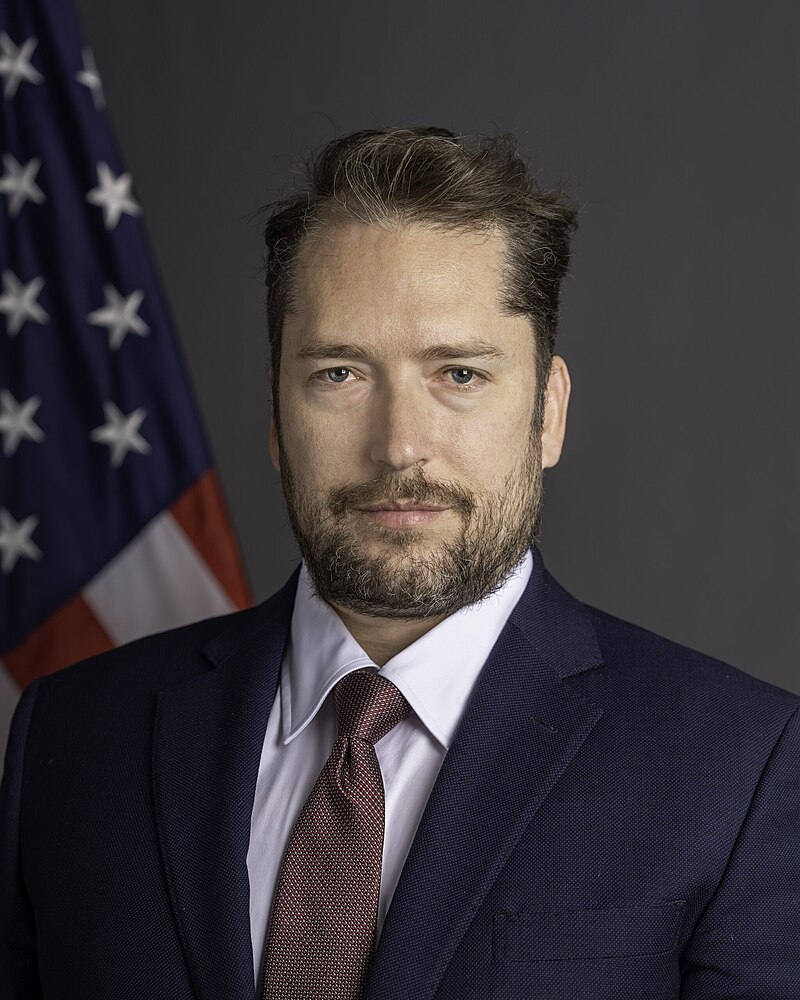In a fresh controversy casting doubt on Donald Trump’s approach to Russia, a top State Department official appointed by the president has come under scrutiny for dismantling a key U.S. counter-disinformation unit—while maintaining ties that lead uncomfortably close to the Kremlin.
Darren Beattie, the acting Under-Secretary for Public Diplomacy and Public Affairs, oversaw the shutdown of the U.S. government’s Russian disinformation watchdog known as R/FIMI, despite his own past praise for President Vladimir Putin and apparent sympathies with authoritarian regimes.
Beattie, who once called for Western institutions to be “infiltrated” by Putin, is married to a Russian woman whose uncle, Sergei Chernikov, has longstanding political and business ties to the Kremlin. Chernikov was once thanked personally by Putin for his support during Russia’s 2000 presidential campaign and later held senior roles in regional government and a Kremlin-affiliated civic chamber.
This disturbing link to Putin’s inner circle, combined with Beattie’s public statements undermining U.S. democratic allies and praising adversarial regimes, raises serious concerns about the direction of American foreign policy under Trump’s influence.
Read Also: Trump: Putin is “crazy,” Russia risks collapse
A Champion for Moscow in Washington?
Since his appointment in February, Beattie has been accused of pursuing an aggressive campaign to dismantle R/FIMI—the very agency tasked with tracking foreign propaganda from Russia, China, and Iran. Though small, the unit played a critical role in identifying disinformation threats. According to sources inside the State Department, Beattie halted communications with other officials, terminated contractors, and moved swiftly to shut the office down entirely by mid-April.
At the same time, Beattie promoted cultural diplomacy with Russia—including programs in ballet and hockey—and reportedly showed particular interest in classified materials related to Russia, sparking alarm among national security experts.
“It’s one thing to have policy disagreements,” said a former senior diplomat familiar with the matter, “but it’s another to elevate someone who openly praises Putin while tearing down institutions built to counter him.”
Alarming Views on Russia, China, and the West
Beattie’s online record paints a deeply troubling picture. He has described NATO as a greater threat to American liberty than Putin, praised the Russian president as “brave and strong,” and claimed that Putin has done “more to advance conservative values in the U.S. than any Republican.”
He has referred to Britain as a “sewage pit” and a “dystopia,” called for the U.S. to surrender Taiwan to China, and suggested that Western democracies would improve if directly “controlled by Putin.” These remarks remain publicly visible on his social media accounts, raising questions about vetting standards under Trump’s administration.
White House Ties and “America First” Agenda
Beattie, once fired from the Trump White House in 2018 for reportedly attending a white nationalist gathering, re-emerged as a far-right media figure before being brought back into government. He founded Revolver News, a platform known for promoting conspiracy theories and attacking institutions that counter authoritarian disinformation campaigns.
Sources say Beattie launched a last-minute campaign to collect internal records from R/FIMI staff—an act some described as a “witch hunt” aimed at discrediting journalists and civil servants who tracked foreign interference.
Despite his radical views and contentious background, Beattie was granted a high-level acting role that allowed him to bypass Senate confirmation for up to 210 days. Critics say that loophole has allowed Trump loyalists to operate under the radar.
Trump’s Russia Problem Deepens
Beattie’s appointment comes amid growing frustration within Trump’s own party over his refusal to take a harder line against Putin. As the war in Ukraine drags on, and Trump continues to oppose ceasefire deals, lawmakers are increasingly at odds with the former president’s ambiguous stance toward Russia.
“If Trump wanted to prove he’s not soft on Russia, putting Darren Beattie in charge of U.S. public diplomacy was a strange way to show it,” said a Republican aide who asked not to be named.
Though Trump and his allies have dismissed criticism as “fake news,” the optics are hard to ignore: a senior U.S. official, married into Kremlin-connected circles, dismantled America’s disinformation defense—while cheering on adversaries and undermining allies.
As America heads into a high-stakes election season, many wonder if the nation’s foreign policy tools are being weakened not by its enemies—but from within.



